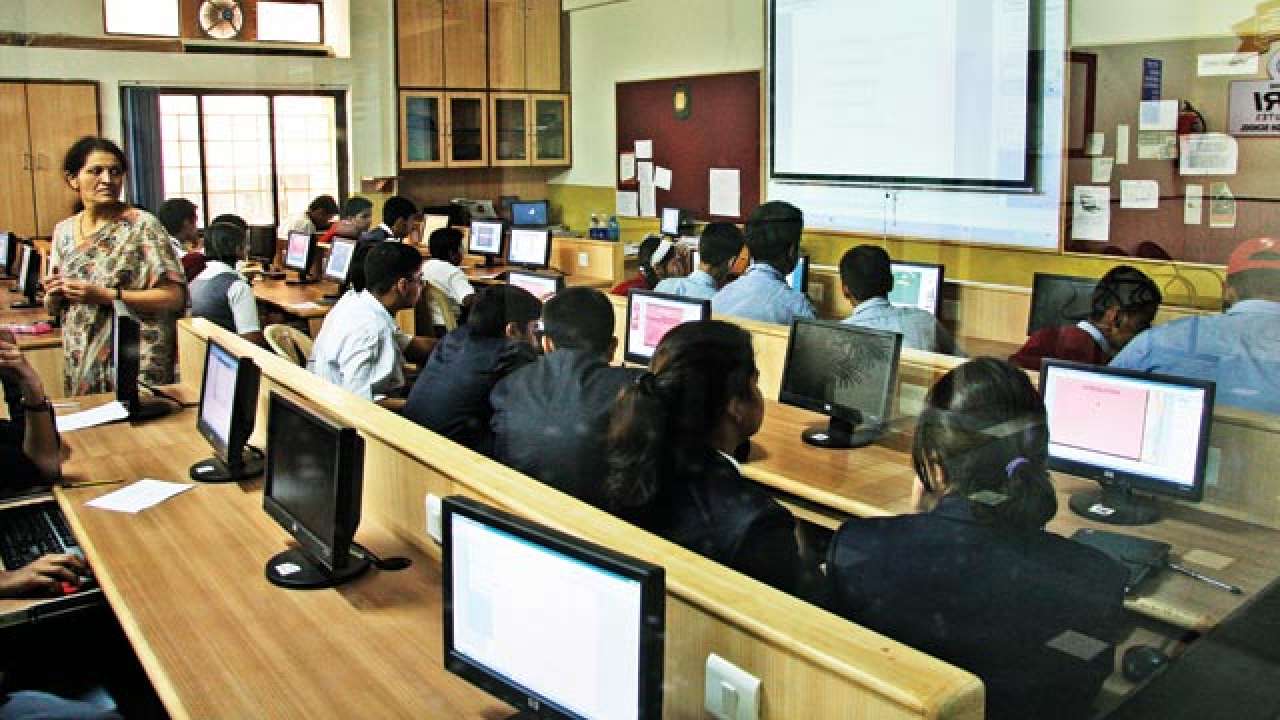
India is keen to race along the digital highway. It has achieved much with stunning figures. More than a billion active mobile connections, most of whom access the Internet through their devices. At the recent Global Conference on Cyber Space, Prime Minister Narendra Modi spoke passionately about the importance of a digital ecosystem for empowering citizens and fuelling economic growth.
Modi said, “The Internet has become the ideal platform for youngsters to showcase their creativity, capability and capacity — be it an insightful blog, a beautiful musical rendition, artwork, or theatre… the sky is the limit.”
True. But currently, India’s education system is the putting severe limits on students yearning to join the technology revolution.
Consider this. Under the current rules, a 12th grade student with Physics, Maths and Computer Science is not eligible to study a bachelor’s degree in science or technology in national universities. The system has created a rigidity that ensures that unless a student has graduated in Physics, Chemistry and Maths compulsorily, he or she is ineligible. So a student who wants to pursue Computer Science with Physics will not be allowed only because he or she did not take Chemistry.
By forcing students to take bundles of subjects in take-all or leave-all option, the rules of higher education stifle freedom. In the US, however, undergraduate and postgraduate schools allow students to take any configuration of subjects as long as they choose to specialise in one. So, while a student in India is not eligible for BSc in Computer Science only because Chemistry or Physics was dropped, in the US there is no such stipulation. Most colleges in the US offer not just a flexible BSc in Computer Science but also a BA in Computer Science. Let me emphasise this. In the US, students can get a Bachelor of Arts degree in Computer Science without Chemistry while in India, even a normal BSc in not possible.
Let me share another such absurdity. Most colleges that teach Computer Science focus on theory more than practice. At some institutions, students don’t do any actual programming for the first two years of their course. In the US and Europe, students start writing programmes within weeks of their course. And they write a programme once a week on average.
Such rigidity and absurdity are hurting India in many ways. Firstly, it has created legions of unemployable engineers and science graduates. A study last year by talent assessment company Aspiring Minds indicates how big the crisis is. In 2014, the study had found that “only 18.43 per cent of engineers were employable for the software services sector, 3.21 per cent for software products and 39.84 per cent for a non-functional role such as Business Process Outsourcing.”
In 2016, the situation was not much better. “Unfortunately, we see no massive progress in these numbers. These numbers were at 17.91 per cent, 3.67 per cent and 40.57 per cent, respectively for IT Services, IT Products and Business Process Outsourcing.”
Aspiring Minds assessed more than 150,000 engineering students from over 650 colleges. Less than 20 per cent of engineers are worth employing for IT services in India.
This brings us to the next impact. Those who can afford to send their children abroad for higher studies do so. They don’t have the faith in Indian education system. As a result, Indians spent more than $10 billion for higher education studies abroad in 2016.
This figure is more than the national government’s budget for higher education in India. In the US alone Indians spent $6.4 billion in 2016 by some estimates. Such resources could have enriched Indian education institutions in an ideal scenario. Such spending abroad also creates deep social divisions. The children of the affluent get a better education than those who can’t afford it. For a government trying to reduce inequities, this situation should not be tolerable.
The final big impact this will have is on India’s digital journey. Already the fourth industrial revolution technologies like the Internet of Things, artificial intelligence and 3D printing are upon us. Many companies have started using them in India, often at the cost of reducing jobs.
Even if the industry wants, it doesn’t get quality talent in India. Some large IT companies invest in training but that is not adequate.
About 12 million people are ready to join the workforce every year, but they will increasingly find themselves without the skills or talent required to be useful for enterprises.
The vibrant start-up community is willing to overlook the lack of talent as it focuses on ideas and enthusiasm. But it will run out of patience too and focus on creating processes that don’t require hiring more people.
For Prime Minister Modi, this should be a crisis. India’s education sector needs an urgent and deep overhaul. Several committees and experts have laid out the path for education reforms. How can India prepare for a world dominated by challenges of cyber security, IoT and AI when we can barely produce employable graduates? Without basic changes, India will limp along the digital highway instead of racing on it.
The author is an economic analyst and author of Kranti Nation: India and The Fourth Industrial Revolution